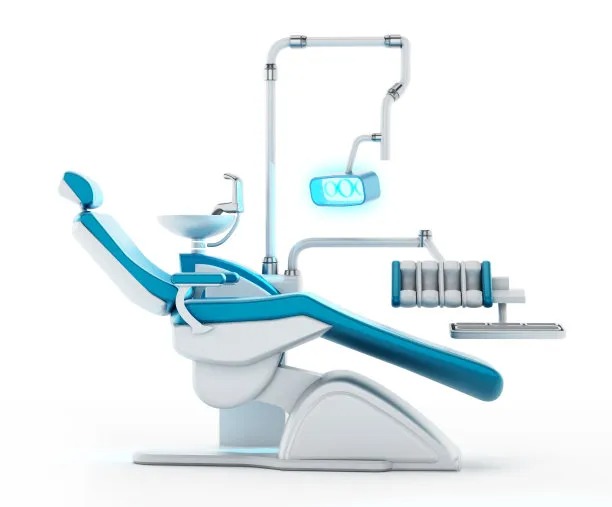Summary: Dental implants have revolutionized the way we think about oral health and aesthetics. This article delves into the transformative effects of modern technology on dental implants, detailing how they enhance oral health, improve functionality, promote psychological well-being, and utilize cutting-edge advancements. It outlines not only the clinical aspects but also the life-changing benefits for patients, illustrating how these innovations restore confidence and redefine smiles. Through each section, we aim to illuminate the comprehensive nature of dental implants and their pivotal role in contemporary dentistry.
1. Enhancing Oral Health through Innovation

The introduction of dental implants represents a significant advancement in the field of dentistry, fundamentally shifting how dental professionals approach tooth loss. Implants are designed to replace the root of a missing tooth, providing a solid foundation for fixed or removable replacement teeth that blend seamlessly with existing ones. Unlike traditional dentures, which can slip and cause discomfort, dental implants offer stability and support, greatly improving oral health.
Modern technology in implant dentistry has advanced the way these procedures are performed. With the advent of 3D imaging and computer-assisted design, dental professionals can now create precise treatment plans tailored to the individual needs of patients. This customized approach not only ensures better results but also minimizes surgical time and recovery, making the entire process more efficient.
Furthermore, dental implants help to preserve the jawbones integrity. When a tooth is lost, the jawbone can begin to deteriorate due to a lack of stimulation. Implants maintain bone density, preventing the bone loss that usually accompanies tooth loss. This natural structure is crucial for maintaining facial aesthetics and oral health, ensuring patients not only have a functional smile but also a youthful appearance.
2. Improving Functionality and Comfort
One of the most compelling reasons patients opt for dental implants is their superior functionality compared to other restorative options. Unlike dentures, dental implants allow individuals to eat, speak, and smile without the fear of slippage or discomfort. This enhanced functionality directly impacts daily life, allowing patients to enjoy their favorite foods and engage in social activities without hesitation.
Implants also contribute to better oral hygiene. With traditional bridges and dentures, cleaning can be cumbersome, often leading to inadequate care and further dental issues. Implants, on the other hand, are treated like natural teeth; patients can brush and floss normally, facilitating a more effective oral hygiene routine.
The comfort provided by dental implants cannot be overstated. Once the healing process is complete, the implants become a permanent part of the mouth; patients often forget they have them. This comfort and ease of use enhance the overall quality of life, making dental implants an investment in ones long-term well-being.
3. Psychological Well-Being and Emotional Boost
The impact of dental implants extends far beyond physical health; they play a significant role in the mental and emotional well-being of patients. The confidence boost gained from having a complete and attractive smile can radically transform an individuals self-image. Many patients report feeling more outgoing and socially engaged once their smiles are restored.
For individuals who have lived with tooth loss for an extended period, the psychological benefits of implants can be profound. They not only restore function but also alleviate the insecurities associated with missing teeth. This renewed confidence can encourage individuals to pursue personal and professional opportunities that they may have previously avoided due to their dental appearance.
Additionally, the long-term benefits of having a confident smile can enhance relationships and overall happiness. Studies show that people with better dental aesthetics are often perceived as more friendly and successful. Thus, the emotional impact of dental implants contributes positively to one’s social interactions and quality of life.
4. Advancements in Dental Technology
As dental technology continues to evolve, so too do the techniques and materials used in dental implants. Innovations such as laser dentistry and guided implant surgery have improved precision and reduced recovery times. These advancements mean that dental implant procedures can be performed more safely and effectively than ever before.
Furthermore, the materials used in dental implants have improved significantly. Modern implants are typically made from biocompatible materials like titanium, which integrate well with the jawbone. This hardness and resistance to decay ensure that implants are a durable and long-lasting solution for tooth loss.
Developments in digital technology also aid in the planning and execution of dental implant surgeries. CAD/CAM technology allows for the creation of custom prosthetics that align perfectly with the patient’s existing teeth and gums. This precision not only enhances aesthetics but also increases functionality, underscoring the ongoing transformation in dental care.
Summary:
Modern dental implants have fundamentally changed the landscape of oral health, creating lasting impacts on both functionality and aesthetic appeal. They serve as a testament to how advancements in technology can dramatically improve patient care, restore confidence, and enhance overall quality of life. With benefits ranging from improved oral health to psychological well-being, dental implants stand at the forefront of modern dentistry.
This article is compiled by Vickong Dental and the content is for reference only.
Vickong Dental
Vickong Dental is a large medical group established in Hong Kong in 2008 by professors from well-known medical universities in Guangdong and Hong Kong, as well as medical doctors from key national '985' universities (including Master's supervisors and senior professors). The chain of branches brings together expert dentists with PhDs and Master's degrees from Hong Kong and Mainland China, committed to providing high-quality dental treatment.
"Vickong Dental Practices the University Motto of 'Healing and Serving Society,' with a Stable Operation for Sixteen Years. It Has Been honored with Hong Kong Enterprise Leaders's Choice,' and is a Global Trusted Implant Center for the Nobel Implant System. Recommended by Hong Kong Metro Broadcast and Guangdong Television, it Serves Customers from Over Thirty Countries and Regions, Gaining the Trust and Favor of Citizens from the Guangdong-Hong Kong-Macau Greater Bay Area and Surrounding Cities.

Thousands of customers' unanimous praise
The most recognized and highly recommended dental service by customers in the Guangdong-Hong Kong-Macau Greater Bay Area
We Ensure You Receive Detailed Care and Attention Here
Hong Kong standards, Shenzhen prices, Your Trusted English-speaking dentists

Vickong Dental Medical-Grade Instrument Disinfection Process
Vickong Dental Medical-Grade Instrument Disinfection Process

Vickong Dental Chain: A Warm and Comfortable Environment for Treatment






Appointment Hours

Q&A
Why choose Vickong Dental?
Vickong Dental practices the university motto 「Medicine to Benefit Society」, with each branch bringing together highly qualified dentists with doctoral and master’s degrees from Hong Kong and the Mainland, and has maintained seventeen years of steady operation。Recipient of 「2024 Hong Kong Enterprise Leaders Brand」, 「2025 Hong Kong Enterprise Leaders Brand」, a Nobel Biocare Global Trusted Implant Center, and a brand recommended by Metro Radio Hong Kong and Guangdong TV。
To date, we have served customers from more than thirty countries and regions,earning exceptionally high word-of-mouth recognition and trusted recommendations from residents across the Guangdong-Hong Kong-Macao Greater Bay Area and surrounding cities
We have eight major branches in Zhuhai、Shenzhen,and a consultation and service assurance center in Hong Kong,so you can book a free consultation at any time for any questions,which is very reassuring.
If I do not accept the quotation after the CT scan, will I be charged??
No! As long as the actual treatment has not started, you will not be charged any fees.
Will there be any additional charges during the treatment process?
No, there won’t be any additional charges. Before treatment begins, we will clearly explain the treatment plan and its corresponding fees. Only after the patient agrees and signs the consent form will we proceed with the dental service.
Can I pay in Hong Kong dollars?
Yes. Vickong Dental accepts payment in Hong Kong dollars. The amount will be converted based on the exchange rate of the day, and the applicable rate will be clearly communicated to you in advance.
Can I reschedule my appointment at any time?
Yes. Please contact us via **WeChat** or **WhatsApp** as early as possible, providing your original appointment time and details, along with your preferred new date and time slot for rescheduling.













